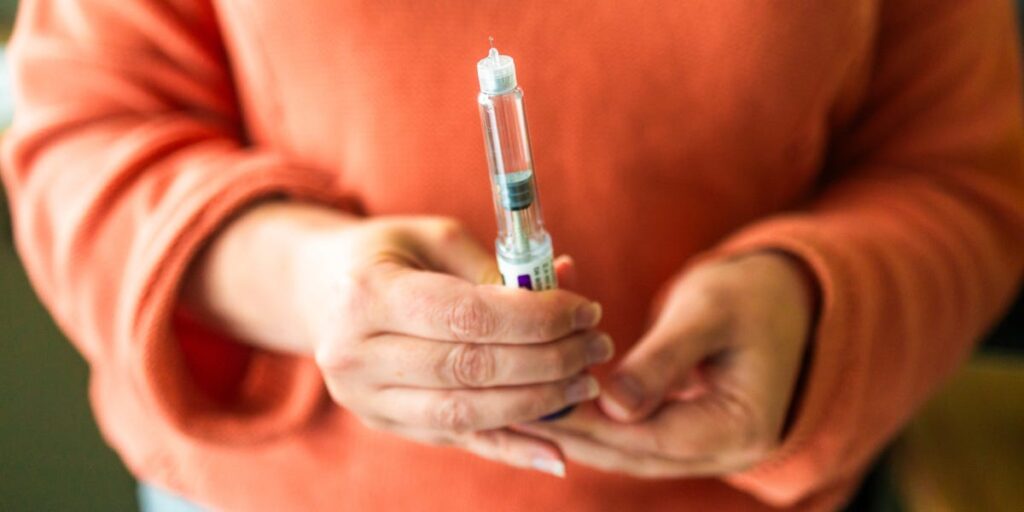My husband walked into our house, and I heard a bag rustle. He was home from his doctor’s appointment and held up a white pharmacy package in front of me.
“Hi, pretty, guess what I need to take? Mounjaro,” he said, looking amused. He put the white box down on the coffee table. I wasn’t sure if he wanted me to inspect or open it. He had heart issues, and his A1C was high. Diabetes was the concern, not weight loss. Jon had to lose 35 pounds for a normal BMI. I would need a greater loss, around 65.
“I know you don’t like GLP-1s or risking side effects, but many people do well,” he offered. I said nothing and kept typing on my laptop. This was not a conversation I wanted to have.
I knew he was worried about my health, but he didn’t understand. For him, my reasons were unfamiliar territory. He sat down next to me and kissed me on the cheek. After a minute of silence, he said, “Think about it, we could do it together.” He rose to put the medication in the refrigerator.
I have too much history with food
Think about it. How delightfully easy that seemed. I simply couldn’t envision success this way-not even with a miracle injectable. Food and I have too much history, and I come by it honestly.
At 9 years old, my mother left my sister and me for months to lose weight. She spent most of her savings on a residential weight loss program in North Carolina. Mom was given housing, exercise, and physician-created meals. She did well and lost 75 pounds. Back home, my dad or brother would take us out to eat. Pizza and diners replaced my mom’s cooking. I was thin and never gave much thought to diets. Quickly, our Saturday night treats became daily outings.
As I grew up, so did my weight. My mom and I tried every diet from grapefruits with rice to meat days and water. She would say, “If you want something bad enough, you will do it.” I believed her. In high school, we tried to cook healthy meals. Chicken, fish, and vegetables were planned. By Wednesday, eggplant parm and spaghetti made their appearance.
Courtesy of the author
Jon would tell me I’m not my mother when I lamented over calories and carbs. That was true — I had my own issues.
We both lost weight
Jon can have a piece of fruit for dessert. When cake or ice cream is available, he sometimes chooses an orange. I could never. Who does that when brownie fudge ripple is available?
My older brother once tried to rip a Twinkie away from my mother. She was furious. He tried to block her arm as her hand fought to put it in her mouth. She won. The next day, she bought two boxes and hid them with a wink at me.
Months ago, I had a difficult day at work. Pizza was all I wanted for dinner. It was Monday, and Jon tried to help me stay on track with healthy eating for the week, but I recoiled.
“Don’t you ever tell me not to eat something,” I yelled. Jon backed off. I felt awful. After that night, he didn’t bring up diets or medication again.
After a few months, Jon looked healthier and had more energy. It was a relief to know his diabetes was a memory. I began to cook more fish and vegetables than pasta or burgers. He happily ate whatever I made and skipped dessert if he knew I was back on my plan. In turn, I didn’t pressure him if he wanted grapes and not cookies. To date, he’s lost 45 pounds, and I’ve lost 22 pounds, making wiser choices.
I believe he understands me better. There is no judgment if I choose to order takeout instead of defrosting the chicken. Jon will text me “thoughts on lunch?” or “Smooch! What would you like for dinner?” from work. As for me, I’ve learned to ask him for help if I need extra encouragement. I’m usually glad when I do.
It’s been significant progress for both of us, and I’ll take it in love and health.



